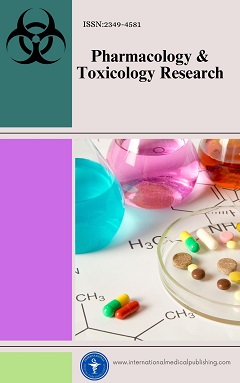ASSESSMENT OF HEAVY METALS CONTENT AND THEIREFFECTS ON TOXICITY OF Acmella uliginosa Sw.
Abstract
The use of medicinal plants has increased in recent decades due to their affordability and especially because of the assumption that natural remedies are safe. Some medicinal plants are used as leafy vegetable. In Bénin, Acmella uliginosa is one of these medicinal plants used as green leafy vegetable. Unfortunately, they are contaminated by environmental and industrial waste such as heavy metals. Thus, the aim of this study was to evaluate the heavy metals (As, Pb, Cd, Hg, Cu, Mn and Zn) contents of Acmella uliginosa, harvested in Cotonou (CAU) and Pobè (PAU) and to assess and compare the oral acute toxicity of the two samples. The heavy metals content was assessed by anodic and cathodic stripping voltam-metry method. The oral acute toxicity of aqueous extracts was evaluated following the guidelines N° 423 of the Organization of Cooperation for Economic Development. The phytochemical study was assessed by thin layer chromatography (TLC) method. The heavy metal analysis revealed the presence of arsenic, lead, mercury, copper, manganese, and zinc in Cotonou sample while only zinc, manganese and copper are present in sample collected in Pobè. The heavy metals concentrations range rom 0.028 ± 0.007 to 0.108 ± 0.052. Cadmium is absent in studied samples. At a dose of 2000mg/kg body weight, no adverse effects were recorded in Pobè sample in contrary to sample collected at Cotonou. The results showed that Acmella uliginosa harvested in Pobé (PAU) does not contained toxic heavy metals while sample from Cotonou (CAU) contained various heavy metals. Aqueous extract of PAU has no toxicity effect in contrary to Cotonou sample. The toxicity of A. ulignosa collected in Cotonou could be due the presence of heavy metals.





